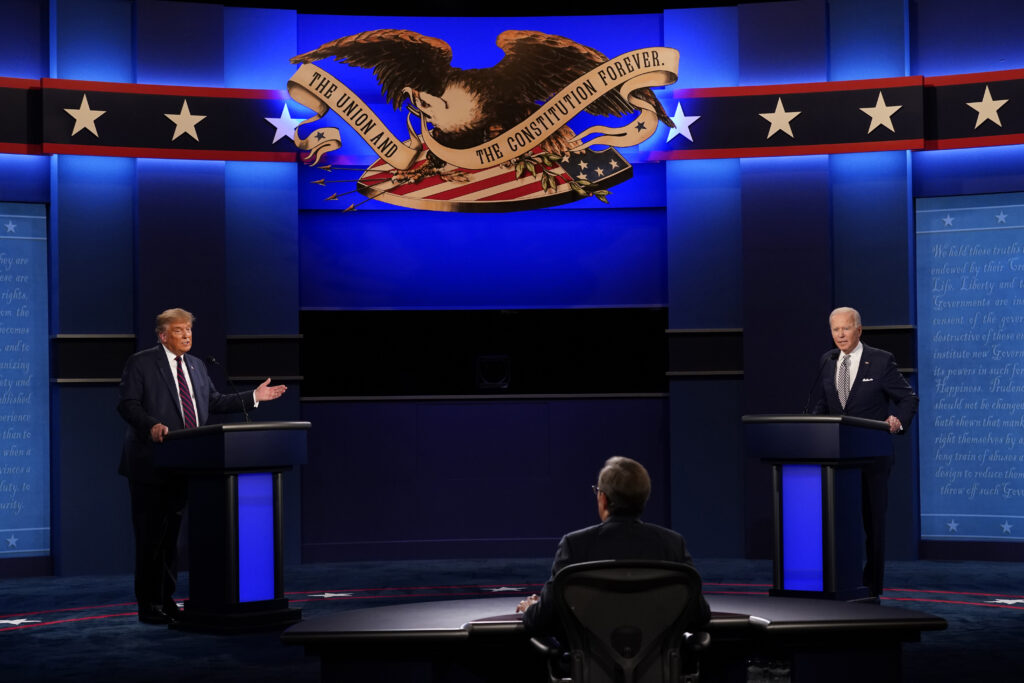First note of business: I’m a Republican. What was your reaction to that statement? What if I replaced it with the word Democrat or Independent. No matter your ideology, it’s likely you had some sort of reaction. That reaction is based off of the policies and issues that you associate with each political party. Constant bias can become a problem when it leads to destructive arguments. This contributes to the political division of a country, one that is supposed to be united. So are people just jerks when it comes to politics? It isn’t that simple. In fact, when we consider the social psychology behind an election year, we can begin to understand others more clearly, and, in turn, we can mend our country to once again be the United States of America.
So no… I’m not going to tell you my political stance, but it isn’t because of fear of judgment. Rather, it is to demonstrate that this isn’t about my political view. It’s about the grander purpose of uniting a nation.
Let’s go back to the point I mentioned earlier. Everyone associates certain policies with certain political parties. This is because our brain operates through schemas, which are developed through life experiences, often in childhood. Schemas are cognitive outlines in our brain that help us categorize information to better understand, process and recollect that information. For example, one may incorporate pro-life, gun rights and lower taxes into their schema of a Republican. However, schemas are extremely resistant to change according to Dr. Pam Hunt Kirk, UWG Professor and Sociology Program Coordinator.
“Once they are developed, schemas influence our learning about all subsequent related events,” said Hunt Kirk. “Sometimes we update our schemas, but most times this doesn’t happen, and instead we assimilate the new information we learn to our existing knowledge.”
Because our schemas are resistant to change, confirmation bias can occur, and it often does. Confirmation bias is the tendency to favor and seek out information that confirms our beliefs and to ignore evidence that disconfirms our beliefs. If someone truly believes that COVID-19 is a political sham, they will believe it, despite the majority evidence to the contrary. This is a direct result of confirmation bias. This social psychological occurrence mixed with today’s biased media is a potent combination causing political tension.
“Some scholars argue that the rise in political polarization is due largely to the increasing likelihood that people on both sides of the divide are spending an increasing amount of time in communication with people who are politically like-minded and increasingly less in communication with people on the opposite side,” said Hunt Kirk.
By constantly consuming media that only agrees with our own opinions, our brains process that as repeated confirmation that we are right and the other group is wrong. Many of our biased news sources were created solely to divide people on politics, and they are purposefully using confirmation bias to their advantage in order to increase their ratings. It is a vicious cycle, in which every time we try to unite as a nation it is torn down as a result of biased media and the way our brains are wired. Just because someone is a part of a certain political party it does not mean they agree with every stance within that party. It also doesn’t necessarily mean they agree with everything their party’s candidate says or does.
The answer to solving the political divide is right within our grasp. All we have to do is stop making assumptions based on our personal schemas, stop hiding behind a computer screen and start having constructive conversations. After all, we all want the same thing—the best for our country. Through civil political conversations, you may find that you have a lot more in common with the other political party than you initially thought.
We all see the world through a different lens. For some people it’s a red lens, for others it’s blue, and there are various shades of purple in between. One thing we can’t forget is that we are all looking through the same camera—the camera of humanity and hope for America’s future.
